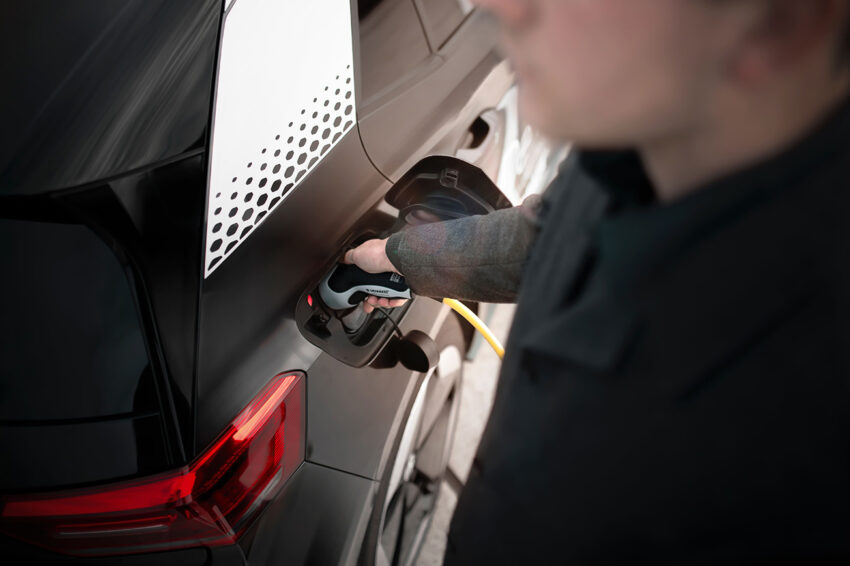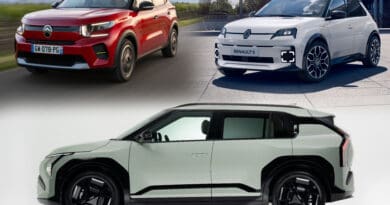Battery health is key to the used electric car market
Patrick Cresswell, CEO of ClearWatt, explores the burgeoning second hand EV market and explains how dealerships can further improve their service offering to take full advantage of escalating sales.
Change is in the air for used EVs. In 2023, sales in the UK nearly doubled (increasing 90.9% from the previous year to more than 118,000 units), far outpacing the wider industry’s 5.1% increase in second-hand sales. With ex-lease and fleet cars now heavily entering the market, there’s never been a better time to buy a used EV.
And indeed, while supply is growing, prices have also fallen significantly. In fact, according to Auto Trader, the average used EV price is now much more aligned with its combustion counterparts than ever before, while the average speed of sale of used EVs has accelerated to just 28 days, the same as petrol.
Despite the increase in availability and accessible pricing of quality used EVs, the market is certainly not without its challenges, primarily in consumer confidence in battery tech.
Tackling the problem of confidence
While used EV sales are at an all-time high, there are still lingering concerns from would-be plug-in owners that can prevent them from making the switch. In a survey of UK drivers and car dealerships, more than a quarter of drivers said they wouldn’t buy a used EV, the majority (62%) citing battery lifespan as the number one reason, with other common concerns including affordability and charging infrastructure availability.
While prices have fallen, public charging networks have been strengthened and there are more home EV chargers on the market than ever, addressing the issue of battery health is proving much more difficult.
For many, the unknown quantities surrounding EV battery life present a real barrier to adoption and are exacerbated by experiences with other battery-powered devices, like smart phones, that tend to lose maximum capacity relatively quickly. Typically, EV manufacturers offer an eight-year or 100,000-mile warranty against the maximum battery capacity dropping below 70%. However, EV owners may not always be comfortable with the health of their battery (and the resulting value of their car) being determined solely by the manufacturer. In the end, prospective buyers could benefit greatly from reliable, third-party assurance that their vehicle’s battery will last – and it falls to dealers to provide this assurance and help alleviate these fears.
Many EVs come with a battery management system that allows drivers to monitor metrics like temperature, voltage, current, mileage per charge, and charging times. However, the average consumer may find it difficult to track and understand this raw data, and would benefit from understanding how this telemetry tangibly relates to overall battery health.
So how can dealerships help prospective buyers to demystify this information and make a more informed purchase decision? The best option would reasonably be to offer transparent, certifiable proof that the battery is in good condition.
One such option is ClearWatt’s EV Health Checker app, which uses AI to measure telemetry, certify EV battery health and offer comprehensive data on the overall status of the car. Having a vehicle officially certified will make it more attractive to prospective buyers, while also reducing vehicle time on the forecourt for dealers. Additionally, using such a service unlocks options for dealers to offer more comprehensive warranty and service packages which, with EV batteries so expensive to replace, can make for a very attractive offering.
Preparing for battery health standardisation
A long-term solution for assuring battery health (and strengthening the second hand EV market as a whole) would be standardisation in battery health certification. Prior to the summer election, Labour proposed a standardised battery health certification scheme, although no concrete details have been announced since. Some lobbyists are recommending the government follow the European Union’s plan to mandate a state-of-health (SOH) monitor from OEMs on every car sold, which is due to come into law in winter 2027. However, even if timelines are met and the UK does indeed follow in the EU’s footsteps, it will not be until at least 2030 that these cars enter the used market – a dire situation indeed when the need for shoring up confidence in battery health is very much right now.
Dealerships that embed battery health assurance into their current service offerings, however, can start making inroads by providing an immediate solution to an immediate problem. By getting out ahead of the curve and offering third-party certification, not only can they start building up a loyal EV customer base right now, but will be ready when standardised battery certification eventually enters law.
The used EV market is changing fast, so much so that processes and best practice haven’t quite yet had a chance to catch up with the evolving landscape. By offering battery health assurance as a part of their sales service, dealerships can not only grow their customer base, create loyalty and accelerate sales, but also help strengthen the EV market as a whole by facilitating a healthy, transparent marketplace and ultimately putting more EVs on the road.






